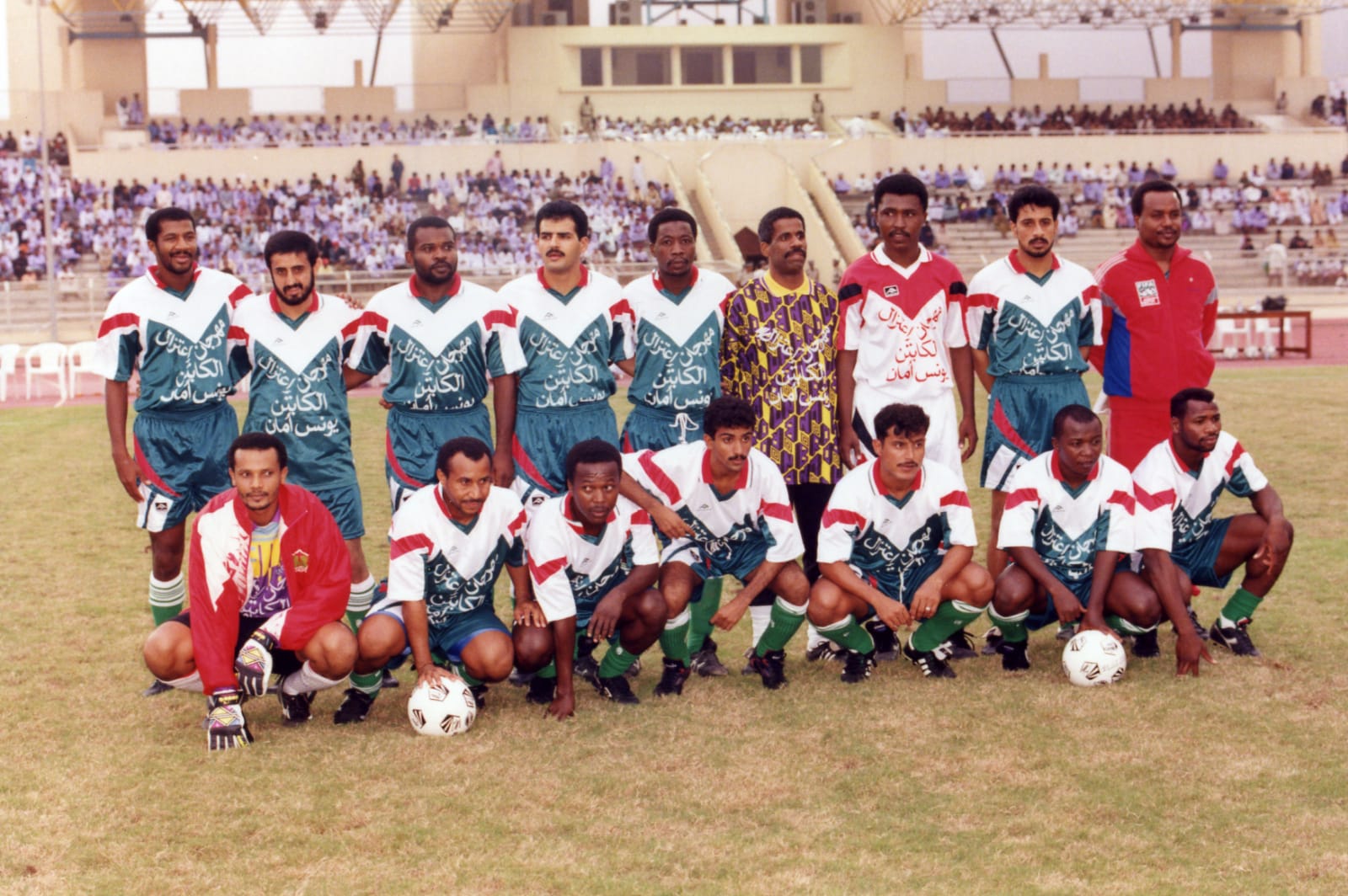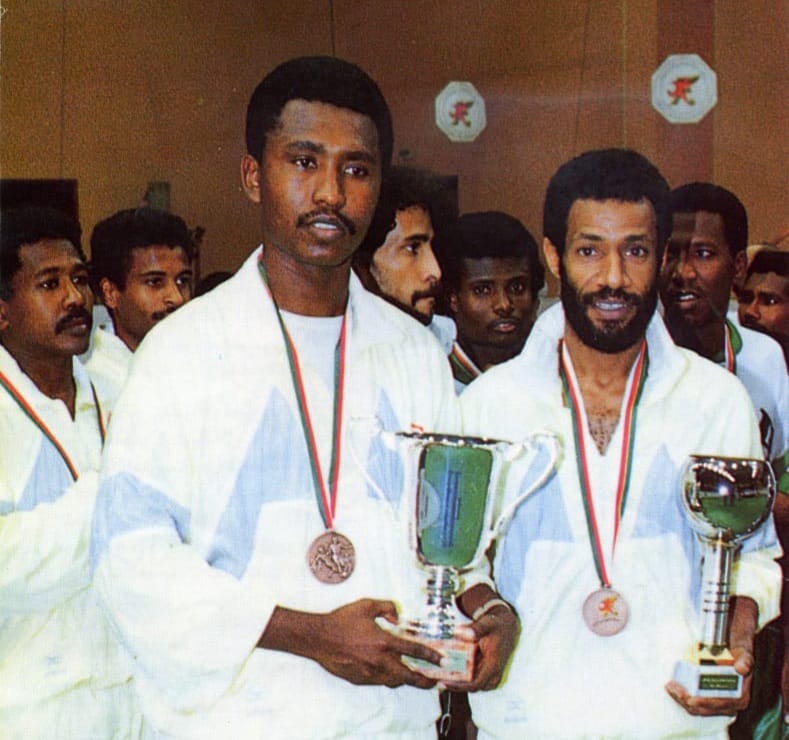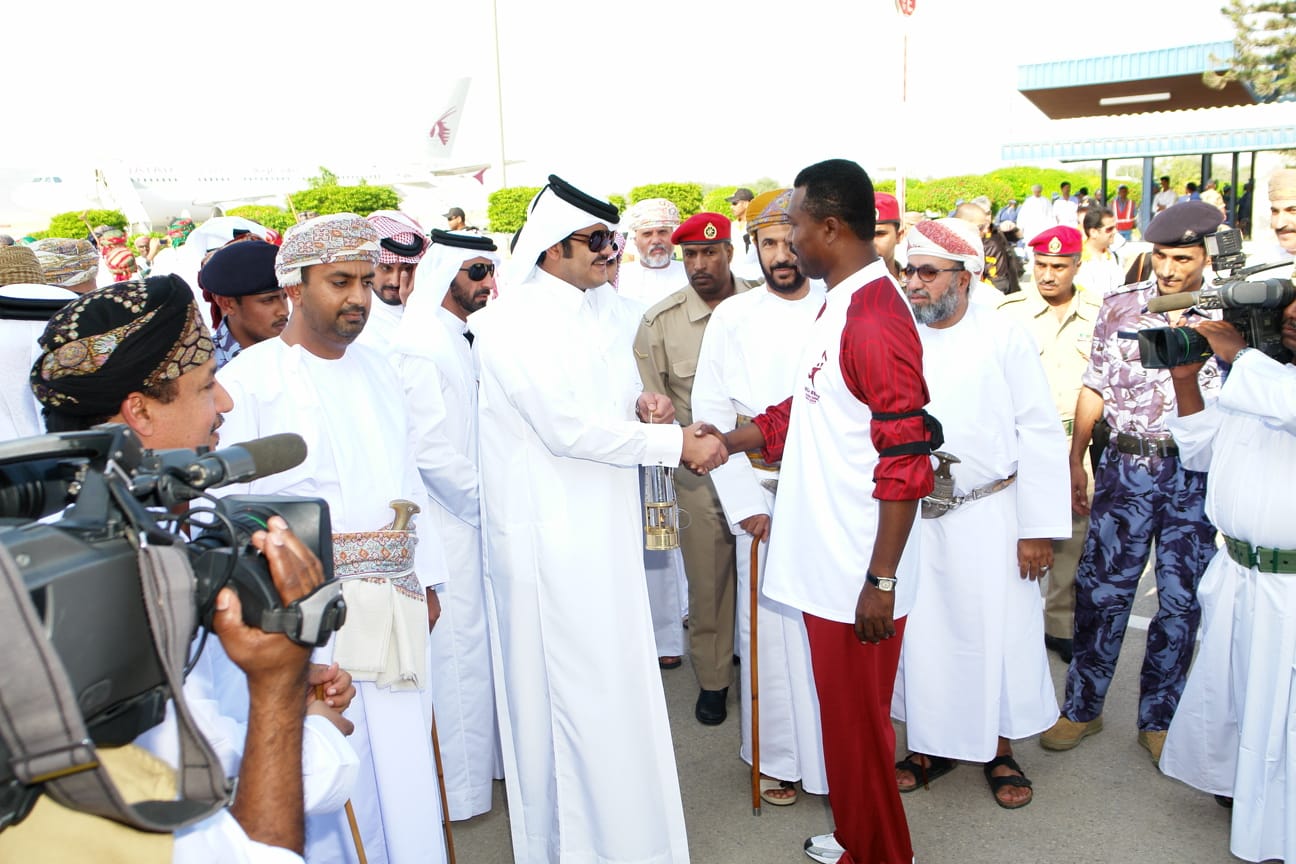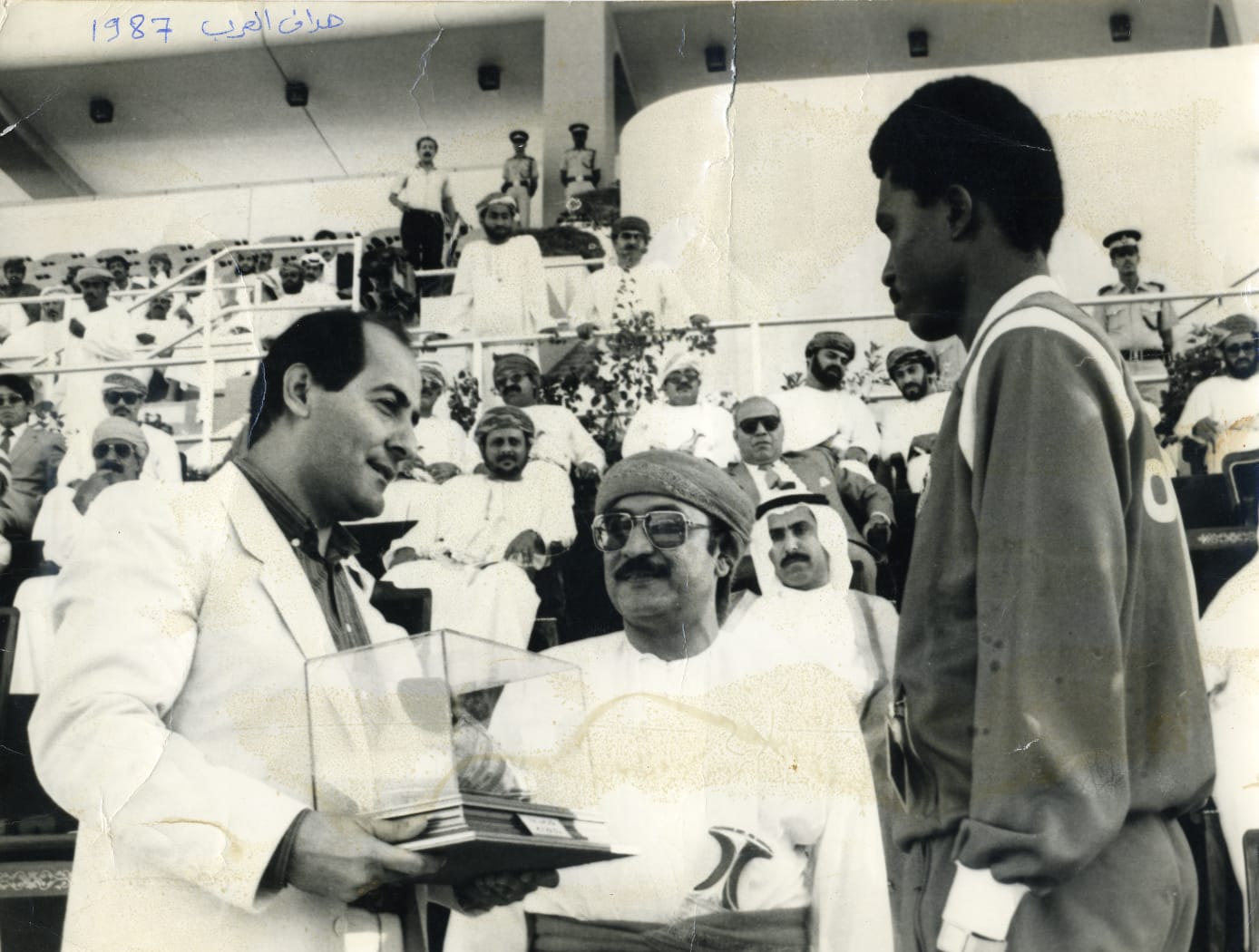Younis Aman in an interview with AGCFF: The Gulf Cup tournaments contributed to the arrival of many Gulf teams to the World Cup

>> Talking about the Gulf tournaments is a passionate talk, as the Gulf courses are a World Cup championship in terms of follow-up to families and the passion that appears on the players and fans
>> The Gulf courses contributed to the establishment of infrastructure, including stadiums and facilities, and to showing and introducing Gulf stars to the media
>> My career in Dhofar is a journey of love, respect, achievements and heroism, and it represents for us the great family home
>> The closest tournaments to myself is His Majesty the Sultan’s Cup in 1981, when we beat King Al-Nasrawi
>> I received several offers, most notably from the Saudi Al Hilal, the UAE Al Ain, the Qatari Arab, the Egyptian Al-Ahly and the Portuguese Porto
One of the brightest stars of Omani football in the eighties of the last century. For the Gulf Cup, he is a star from the beautiful time of Omani football, Younis Aman, who is hosted by the Arab Gulf Cup Federation in an interview that sheds light on his football career and its most important stations.

Q: Omani football star Younis Aman, how did your story start with the ball? How did the Dhofar environment affect your talent?
I was born in 1965 in Salalah, my beginning was in the neighborhoods and places near the house, as well as the Al-Saeediya school in Salalah, and the closest places and playgrounds to my heart for playing football in the neighborhood was the home of the family of Beit Al-Sail Al-Ghassani in Al-Darb Al-Kabeer, where this ancient family provided us with all psychological and moral support as children who love football, I remember well the looks of His Excellency the father, Professor Hafeez bin Salem Al Ghassani, watching us as we played innocently and passionately, without getting upset, but the joy was always visible on his face, as if he was looking forward to the sporting future of me and my colleagues, most of whom represented the Dhofar Club later.
The Saidia School and its teachers had a great favor on me and my colleagues, especially Egyptian Mr. Fawzi Al-Saqqa, who trained the Dhofar Club in 1976 and won with Dhofar the first championship of His Majesty the Sultan’s Cup. It is the stronghold of the Zafarawi leader.
In the 1977/1978 season, I played for the Dhofar youth team and the first team 1978/1979, and also played for the school team in the governorate.
And of course, in my story, I must refer to the good and appropriate environment in the Dhofar Club, which helped a lot in my upbringing and all my colleagues in the club and helped us in creativity and brilliance and taught us discipline, respect and humility with everyone before tournaments and winning, and this is what we grew up on in the club, especially that the stars of Dhofar in the seventies, they were role models for the generations who played after them, and I personally had the honor to play with a large group of the heroes of the seventies, and they have all the appreciation and respect.

Q: A great march with the leader Dhofar, what does the club represent to you? What is the closest championship to your heart that you have achieved with him?
My career in Dhofar is a journey of love, respect, achievements and championships, and it represents for us the great family home, and the closest championships to me is the His Majesty the Sultan’s Cup in 1981 after our victory over King Al-Nasrawi in the final.
Q: What is the story of this final against Al-Nasr?
The origin of the story is that the match is the derby of the two great neighbors in the governorate of Dhofar, and secondly, that victory was the league champion, and Dhofar was the cup holder in 1980. The first wanted to collect the league and the cup and achieve victory over Dhofar, and the second wanted to keep the cup. The victory included 8 players in the first team, Hamtout Mufleh, Saeed Fayel, Saeed Babjour, Muhammad Masidah, Abdul Rahman Jadah, Abdul Aziz Jadah and Rajab Sanjour, while the Dhofar club included only two players, Captain Dhofar Salem Awad Frijon (George), and Younis Aman. The victory came to the stars of Al-Nasr and scored two goals during the first twenty minutes of the first half through Hilal Al-Shanfari and Ali Noah Mokabel.
Then I scored a goal to reduce the difference and the first half ended, then I scored two goals in the second half, and the third goal was in the extra time. This historical saga ended with the victory of Dhofar 3/2 and Younis scored a hat-trick, of course one of the most beautiful personal memories, and a week before the match I had given birth to my eldest son (Osama), Sheikh Saif Al-Rawas, president of the Dhofar Club, gave me good tidings, and we were optimistic about Osama and won the cup and won the title of top scorer in the tournament.
Among my beautiful memories of 1981, our reception in Salalah after the title was an unusual, rather historic, reception, and this is the story of the 1981 final from my personal point of view.

Q: Tell us about the trio Younis Aman, Ghulam Khamis, and Nasser Hamdan?
This trio, we have family relations and there is love and friendship between us and a great understanding outside and inside the stadium, since 1981 we have played together and Ghulam, may God have mercy on him, was older than me and Nasser, and he was a big star and a role model for his generation, we played together for the youth team in the Asian Youth Cup in Nepal 1982, as well as the Palestine Youth Cup in Morocco 1983.
We also played in the Gulf Cup tournaments: the seventh in Muscat 1984, the eighth in Bahrain 1986, and the ninth in Riyadh 1988, but Ghulam and Nasser participated in Gulf 6 in Abu Dhabi 1982, and I missed this tournament because of my father’s disease, our relationship is always based on mutual respect.
Ghulam and Nasser are considered among the best Gulf football stars, and they participated in the Arab team in Qatar, and I participated in the Arab team in Qatar 1988 against Bayern Munich, and I also participated in the Arab team in Asia and Africa in the 1989 Arab Olympic Day in Cairo.
Q: The first foreign achievement of Omani football in the Gulf Champions Clubs Championship, for which you were the top scorer and you achieved the bronze, do you feel participating in the first achievement of the Sultanate abroad? And the story of professional presentations?
It is true that Dhofar participated in the Gulf Club Championship in Riyadh 1986, hosting Al Hilal Club, which is the second participation of Dhofar after participating in 1983, and I was absent from the participation of the leader due to injury and performing a cartilage operation in Brazil 1983, but the second participation in Riyadh was different, where the players of Dhofar shine and won the first medal for the Sultanate externally, and we got third place after the Saudi champion Al Hilal and the Qatari Arab runner-up, and I won the title of top scorer with 4 goals.
The team’s star and international goalkeeper Hamid Abdul Razzaq also won the award for the best goalkeeper. In the first minute, the Sultanate’s fans went out into the streets and squares, rejoicing at the victory over the Kuwaiti ball.
Upon his return, the team received an official and popular reception in Muscat and Salalah, the stronghold of the leader Dhofar, and these joys lasted for more than ten days, as well as honors from the late His Majesty Sultan Qaboos.
They were beautiful days that cannot be forgotten, and this achievement contributed to changing the face of Omani football for the better and better.

As for foreign offers, yes, there were offers from Gulf clubs such as Al Hilal Saudi, Al Arabi, Al Ain and Al Nasr UAE, as well as offers from the Saudi Federation and European clubs, in Portugal, Porto and Guimaraes, and offers from Zamalek, Al Ahly and Al Ittihad of Alexandria, but all these desires and offers did not find acceptance. One of those in charge of sports in the Sultanate, where professionalism was not the case in Oman.
Q: Have many Omani stars been subjected to injustice due to the lack of professionalism? And who of the old stars would have been shining outwardly?
I cannot say that many Omani players were wronged because they were not allowed to go outside and become professional, due to the lack of a professional system, but I say that many of them possessed talent and intelligence and were able to shine externally, but the laws were the obstacle in the professionalization of many names.
Q: Tell us about the Gulf Cup tournaments, and how do you remember your best goal against Salem Marwan, and what does this goal represent to you?
Talking about the Gulf courses is a passionate talk, as the Gulf courses are a World Cup championship in terms of follow-up to families, and the passion that appears on the players and the fans.
It helped many Gulf teams reach the World Cup, such as Kuwait 1982, Iraq 1986, Emirates 1990, and then Saudi Arabia for the first time in 1994, and many achievements made by Gulf football because of the Gulf tournaments.
I participated for the first time in Gulf 7 in Muscat 1984, and scored in this tournament the most beautiful goals against Shafiq Saudi, and then participated in Gulf 8 in Bahrain 1986, and in Gulf 9 in Saudi Arabia 1988, and we scored Oman’s first victory over the brotherly Qatari team 2-1, which is a historic victory, in which the Gulf teams were the best Asian teams, and this day witnessed the birth of one of the daughters of brother Ghulam Khamis, and it was a double joy that Ghulam and I scored my goal against the Qatari team.

